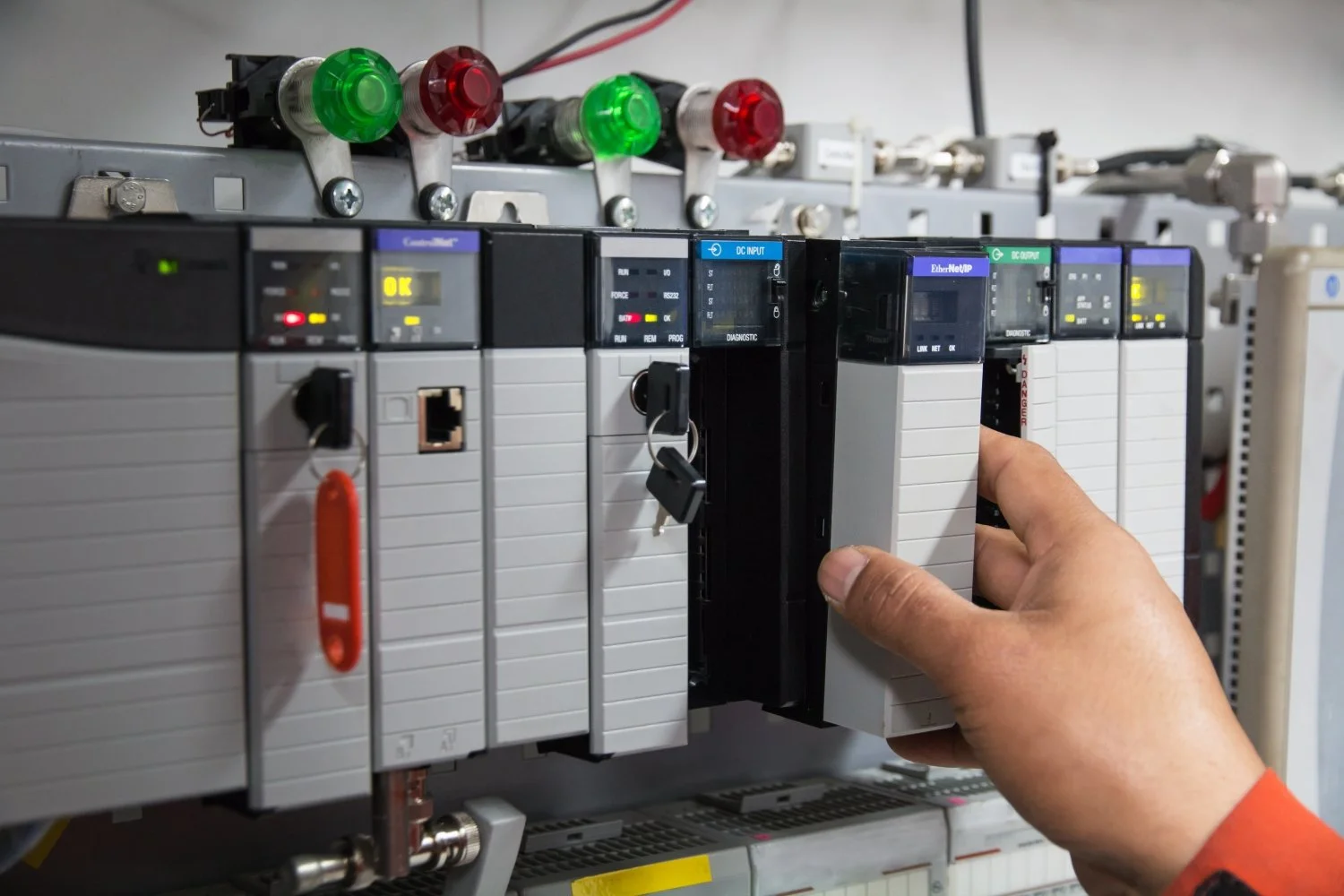About Allen-Bradley RSLogix 5000 Industrial Maintenance and Fault Finding Professional (IMFFP) 3 Training Course
IMFFP® 3 is an advanced programme designed for engineers working with Allen-Bradley PLCs, HMIs, SCADA systems, and industrial networks. This comprehensive four-day course develops the specialist skills needed to build, configure, and troubleshoot complex automation environments using RSLogix/Studio 5000 and Inductive Automation’s Ignition platform.
The programme covers a blend of advanced PLC programming, HMI and SCADA development, and industrial communication technologies, enabling participants to work confidently with modern and legacy networked control systems.
Key areas include:
Installation and configuration of Ethernet/IP communication modules
DDE and OPC protocols for data exchange
Configuring data groups and communication tools
HMI and SCADA development using Ignition
Event-driven interfaces, alarm systems, and data visualisation
Industrial networking (DeviceNet, CAN, PROFIBUS, PROFINET, DH+, ASI)
Handling analogue I/O
User-defined data types, arrays, and advanced data structures
Indirect addressing and efficient programme organisation
Is it right for me?
This course is suitable for engineers and technicians who already have a solid grounding in PLCs and wish to expand their expertise into advanced programming, SCADA design and industrial networking.
What will I learn?
By the end of the programme, participants will be able to:
Configure and troubleshoot Ethernet/IP and industrial networks
Build and deploy advanced HMI and SCADA interfaces using Ignition
Apply sophisticated PLC programming techniques within RSLogix/Studio 5000
Integrate alarms, trends, templates, graphical components, and data I/O
Work with structured data, UDTs, arrays, and indirect addressing
Diagnose and resolve communication issues across a range of industrial protocols
Develop efficient, scalable, and maintainable automation systems
The benefits?
The Allen-Bradley RSLogix 5000 IMFFP® 3 course provides the advanced knowledge required to design, optimise, and support modern integrated control systems. Through practical, hands-on exercises, participants gain confidence in working with Ethernet/IP, SCADA platforms and multi-protocol industrial networks-key skills for engineers operating in complex automation environments.




